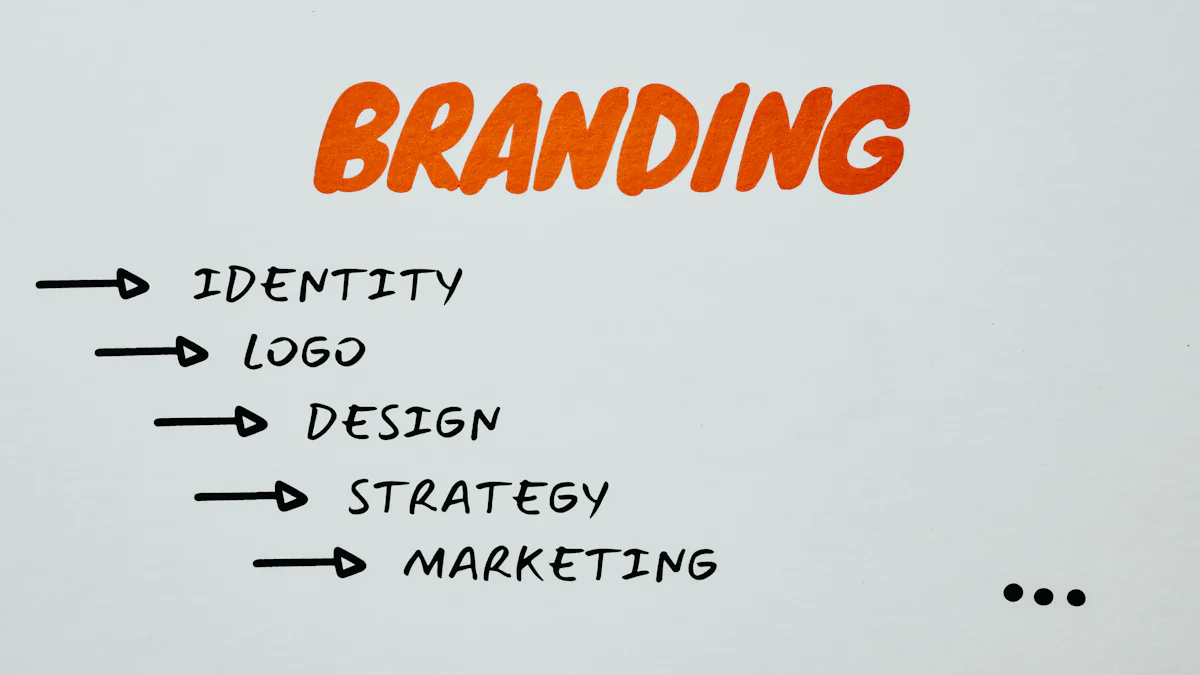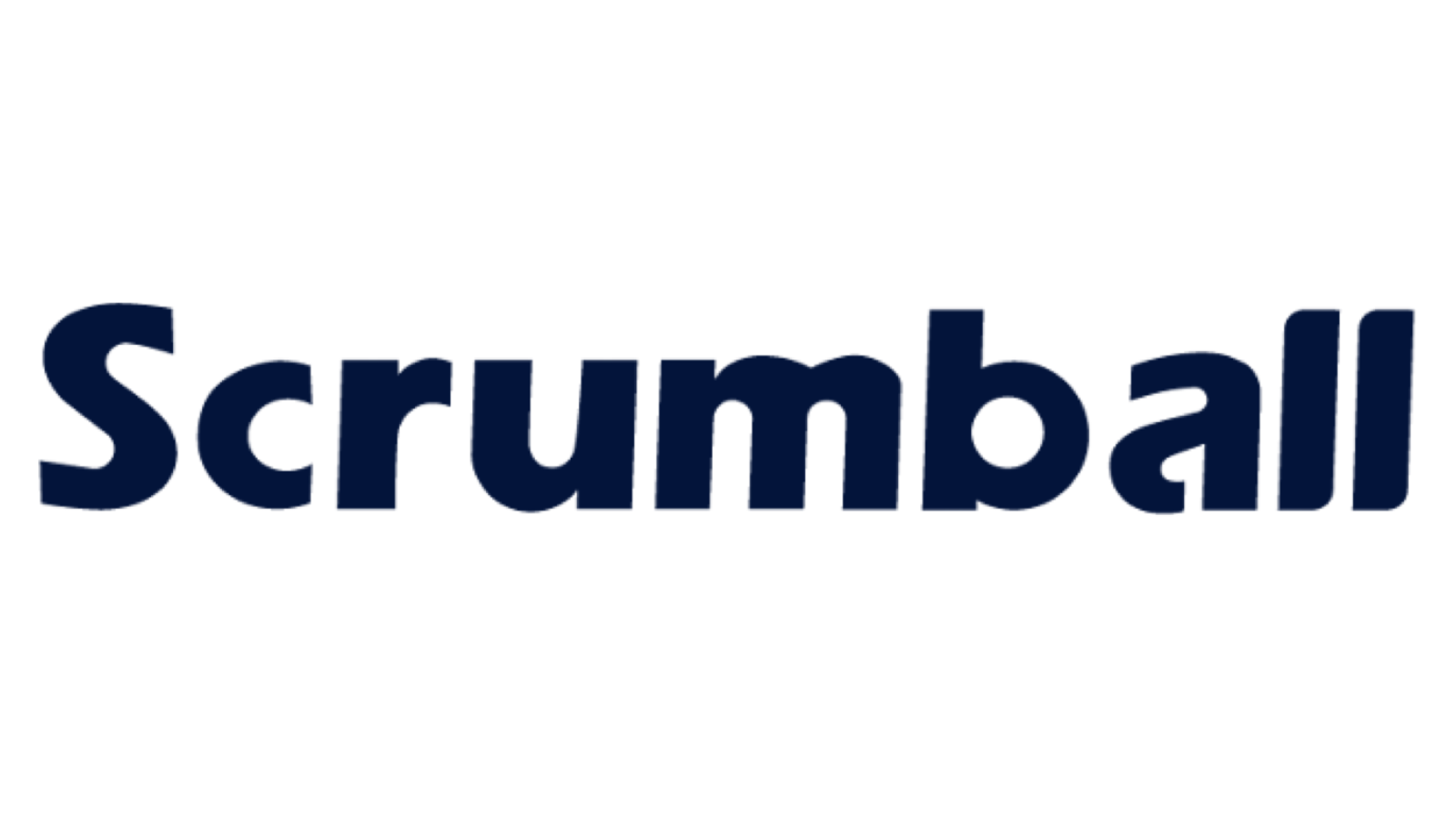Top Marketing Automation Tools for Businesses in 2025

In 2025, marketing automation tools are no longer optional—they’re essential. Businesses are embracing these tools to save time, streamline repetitive tasks, and boost efficiency. Did you know that 76% of companies already use some form of marketing automation? These tools help you nurture leads, improve customer engagement, and scale your efforts without adding extra hours to your day. Whether you’re a small business or a large enterprise, finding the best marketing automation solution tailored to your needs can transform your strategy and results.
What Are Marketing Automation Tools?
Definition of Marketing Automation Tools
Marketing automation tools are software solutions designed to simplify and streamline your marketing efforts. They take over repetitive tasks like sending emails, posting on social media, and managing ad campaigns. These tools also help you nurture leads, deliver personalized content, and analyze campaign performance.
Here’s what makes them stand out:
- They automate time-consuming inbound marketing tasks, freeing up your schedule.
- They enable you to create workflows that guide customers through their journey.
- They provide insights to improve efficiency and customer engagement.
In short, marketing automation tools let you focus on strategy while they handle the heavy lifting.
Key Benefits of Marketing Automation
Time-saving and efficiency
Imagine cutting hours of manual work from your day. Marketing automation tools do just that. They handle repetitive tasks like email marketing automation and social media scheduling. This means you can focus on creative strategies instead of getting bogged down by routine work.
Improved customer engagement
These tools help you connect with your audience on a deeper level. By delivering personalized messages at the right time, you can build stronger relationships. For example, companies using marketing automation have seen an 80% increase in leads and a 451% boost in qualified leads.
Enhanced data-driven decision-making
Marketing automation tools don’t just automate tasks—they also provide valuable insights. With features like predictive lead scoring and real-time analytics, you can make smarter decisions. Businesses using these tools outperform competitors by 63%, thanks to their ability to act on data.
Why Marketing Automation Is Essential in 2025
In 2025, marketing automation isn’t just a nice-to-have—it’s a must. Why? Because the landscape is evolving rapidly. Trends like adaptive campaigns and AI-powered personalization are reshaping how businesses interact with customers. Tools now offer features like voice and chat integrations, dynamic content, and real-time adjustments.
Additionally, customer expectations are higher than ever. People want tailored experiences and instant responses. Marketing automation tools help you meet these demands while staying ahead of the competition.
If you’re not using the best marketing automation tools, you risk falling behind. These tools are no longer optional—they’re the key to thriving in a fast-paced, data-driven world.
How to Choose the Best Marketing Automation Tool
Factors to Consider
Integration with existing systems
When choosing marketing automation tools, you need to ensure they work seamlessly with your current systems. Whether it’s your CRM, email marketing platform, or analytics software, integration is key. Tools like HubSpot and Salesforce excel in this area, offering smooth connections to other platforms. Without proper integration, you risk creating data silos that disrupt your workflows.
Scalability for business growth
Your business will grow, and your marketing automation software should grow with it. Look for tools with tiered pricing plans or modular features that can adapt to your needs. Platforms like HubSpot or Salesforce are designed to scale, making them ideal for businesses planning long-term growth. Always align the tool’s capabilities with your future goals to avoid outgrowing it too quickly.
Ease of use and user interface
A tool might have all the features in the world, but if it’s hard to use, it’s not worth it. Prioritize platforms with intuitive interfaces and straightforward workflows. This ensures your team can adopt the tool quickly without extensive training. User-friendly tools like Mailchimp or ActiveCampaign are great options for businesses of all sizes.
Pricing and budget considerations
Budget plays a big role in your decision. Compare the features offered by different tools against their costs. Small businesses often benefit from affordable options like Brevo, while enterprises may find value in feature-rich platforms like Eloqua. Always evaluate the return on investment to ensure you’re getting the most bang for your buck.
Identifying Your Business Needs
Small businesses vs. enterprises
Small businesses typically need simple, cost-effective solutions with basic automation features. Tools like Mailchimp or Brevo are perfect for this. On the other hand, enterprises require robust platforms with advanced functionalities to manage complex strategies. Salesforce Pardot and Eloqua are excellent choices for larger organizations.
Industry-specific requirements
Your industry also influences your choice. For example, e-commerce businesses might prioritize email marketing automation and lead nurturing, while B2B companies may focus on omnichannel marketing automation. Identify your unique needs to find a tool that aligns with your goals.
Common Mistakes to Avoid When Choosing a Tool
- Assuming one size fits all. Every business is different, and your tool should cater to your specific needs.
- Overloading on features. Too many features can overwhelm your team and lead to underutilization.
- Ignoring integration. A tool that doesn’t integrate with your systems can create inefficiencies.
- Neglecting automation opportunities. Failing to automate enough tasks can limit your marketing effectiveness.
By avoiding these pitfalls, you’ll set yourself up for success with the best marketing automation tools.
Best Marketing Automation Tools for 2025

Best All-in-One Platforms
Tool 1: ActiveCampaign
ActiveCampaign is a powerhouse when it comes to all-in-one marketing automation platforms. It excels in email marketing automation, offering advanced segmentation and personalization features. You can create automated marketing campaigns that guide your leads through the sales funnel effortlessly. With over 900 integrations, it connects seamlessly with your existing systems. Its pricing starts at $29 per month, making it accessible for small businesses while still offering robust features for larger teams.
Tool 2: HubSpot Marketing Hub
HubSpot Marketing Hub is perfect if you're looking for a comprehensive solution. It combines email marketing, CRM, and inbound marketing automation into one platform. This makes it ideal for businesses that want to manage everything from lead nurturing to analytics in one place. HubSpot's user-friendly interface and scalability make it a favorite among enterprises. While its pricing is higher, the value it delivers through its integrated tools is unmatched.
Best for Email Marketing
Tool 1: Brevo (formerly Sendinblue)
Brevo is a versatile tool for email marketing automation. It offers features like audience segmentation, cross-channel personalization, and real-time analytics. Its pay-as-you-go pricing model is great for businesses that want flexibility. Brevo also supports SMS and chat marketing, making it a solid choice for omnichannel marketing automation. However, its limited integrations might be a drawback for some users.
Tool 2: Klaviyo
Klaviyo is a go-to platform for e-commerce businesses. It integrates deeply with platforms like Shopify and WooCommerce, pulling in customer data to create hyper-personalized campaigns. You can use its advanced segmentation and automated flows to deliver dynamic product recommendations. Klaviyo also includes SMS marketing, giving you more ways to connect with your audience.
Best for Social Media Automation
Tool 1: Hootsuite
Hootsuite simplifies social media management by letting you schedule posts, monitor activity, and engage with your audience across multiple platforms. It keeps your social media calendar organized and ensures consistent posting. Hootsuite also provides analytics to help you identify the best times to post, boosting engagement.
Tool 2: Zapier
Zapier takes a different approach to social media automation. It connects over 3,000 apps, allowing you to automate workflows without any coding. For example, you can set up a workflow to automatically share new blog posts on your social media channels. Zapier is perfect for businesses that want to streamline their processes across multiple tools.
Best for Customer Journey Mapping
Tool 1: Iterable
Iterable is a standout tool for customer journey automation. It allows you to create personalized, multi-channel campaigns that guide your customers through every stage of their journey. With Iterable, you can map out complex workflows using its drag-and-drop interface. This makes it easy to visualize how your customers interact with your brand across email, SMS, push notifications, and more.
One of its best features is its ability to deliver real-time personalization. For example, if a customer abandons their cart, Iterable can send a tailored email or SMS to re-engage them. It also integrates seamlessly with your existing marketing automation software, ensuring smooth data flow. While it’s powerful, it may feel overwhelming for beginners due to its advanced features.
Tool 2: Eloqua
Eloqua is another excellent choice for customer journey automation, especially for enterprises. Its Campaign Canvas feature lets you design sophisticated, multi-touch campaigns with ease. You can segment your audience based on behavior, demographics, or even purchase history. This ensures your messages are always relevant and timely.
Eloqua also excels in omnichannel marketing automation. It supports email, social media, and even offline channels, making it perfect for businesses with diverse customer bases. Companies using Eloqua have reported a 15% to 30% increase in campaign effectiveness. However, its steep learning curve and higher price point might make it less suitable for smaller teams.
Best for Small Businesses
Tool 1: Mailchimp
Mailchimp has been a trusted name in email marketing automation for over 20 years. It’s designed with small businesses in mind, offering an intuitive interface and affordable pricing. With Mailchimp, you can create targeted email campaigns, automate follow-ups, and even manage your CRM.
It also helps you track customer behavior and campaign performance, so you can refine your strategies. Need to schedule social media posts or personalize website content? Mailchimp has you covered. Its all-in-one approach makes it one of the best marketing automation tools for small businesses.
Tool 2: Brevo (formerly Sendinblue)
Brevo is another fantastic option for small businesses. It offers email marketing automation, SMS campaigns, and even real-time chat functionality. This makes it easy to connect with your audience across multiple channels.
Brevo’s pay-as-you-go pricing is perfect for businesses on a budget. It also includes tools for lead scoring and nurturing, helping you move prospects through the sales funnel efficiently. While its integrations are somewhat limited, its user-friendly design and robust features make it a top choice for small teams.
Best for Enterprises
Tool 1: Salesforce Pardot
Salesforce Pardot is a powerhouse for enterprises looking to align marketing and sales. It specializes in B2B marketing automation, offering features like lead scoring, ROI tracking, and advanced analytics. Its integration with Salesforce CRM ensures seamless data sharing between teams.
Businesses using Pardot report 30% faster lead conversions, thanks to its ability to streamline workflows. It’s ideal for organizations that need a scalable solution to manage complex campaigns. However, its advanced features come with a higher price tag, making it best suited for larger enterprises.
Tool 2: Eloqua
Eloqua makes another appearance here, and for good reason. It’s built for enterprises that need robust customer journey automation. Its scalability and flexibility make it a favorite among global businesses. Eloqua also shines in highly regulated industries, thanks to its advanced data management and compliance features.
With Eloqua, you can design multi-channel campaigns that drive results. Its analytics tools provide deep insights into customer behavior, helping you optimize your strategies. While it’s not the easiest tool to learn, its capabilities make it worth the investment for large organizations.
Comparing the Best Marketing Automation Tools

Feature Comparison
When it comes to features, marketing automation tools offer a variety of capabilities to help you streamline your efforts. Here’s a quick breakdown of what you can expect:
- Campaign and Lead Management: Tools like HubSpot and Pardot let you launch campaigns and track leads effortlessly.
- Email Marketing: Platforms such as Mailchimp and Klaviyo excel at sending personalized emails based on customer behavior.
- Mobile Marketing: Brevo and Iterable allow you to target mobile users with SMS and push notifications.
- Reporting and Analytics: Salesforce Pardot and Eloqua provide detailed insights to measure campaign success.
- Content and SEO Tools: HubSpot includes features to create and optimize content for search engines.
- A/B Testing: Tools like Mailchimp help you test different designs to see what works best.
If you’re looking for advanced automation features, platforms like Salesforce Pardot and Eloqua stand out with their ability to handle complex workflows and real-time personalization.
Pricing Overview
Pricing varies widely depending on the tool and its capabilities. Here’s what you need to know:
- Affordable Options: Mailchimp starts at $6/month, while Automizy begins at $9/month. These are great for small businesses.
- Mid-Range Tools: Constant Contact costs $12 to $80/month, depending on your contact list size.
- High-End Platforms: HubSpot ranges from $800 to $3,600/month, and Pardot can go up to $20,000/month for enterprise-level features.
- Free Plans: Tools like MailerLite and SendPulse offer free plans with basic features, perfect for beginners.
Most tools also provide free trials, so you can test them before committing to a subscription.
Pros and Cons of Each Tool
Here’s a quick look at the strengths and weaknesses of some popular tools:
| Tool | Pros | Cons |
|---|---|---|
| Mailchimp | User-friendly, affordable, and great for beginners. | Limited features beyond email marketing. |
| HubSpot | Comprehensive all-in-one platform with excellent scalability. | Higher pricing may not suit smaller businesses. |
| Salesforce Pardot | Advanced analytics and seamless CRM integration. | Complex setup and premium pricing. |
| Brevo | Flexible pricing and strong SMS marketing capabilities. | Limited integrations compared to competitors. |
| Eloqua | Powerful for enterprises with robust customer journey mapping. | Steep learning curve and high cost. |
| Hootsuite | Excellent for social media scheduling and analytics. | Can be expensive for small teams. |
By weighing these pros and cons, you can find the tool that best fits your business needs.
Marketing automation tools are game-changers in 2025. They improve efficiency by automating repetitive tasks, enhance customer experiences with personalized updates, and leverage AI for smarter, data-driven decisions. Tools like these allow you to focus on strategy while delivering seamless, omnichannel experiences to your audience.
Before choosing a tool, take time to evaluate your business needs. Are you looking to generate leads, boost engagement, or improve conversion rates? Define your goals and find a tool that aligns with them. Don’t forget to consider scalability and your budget to ensure long-term success.
Finally, explore free trials or demos before committing. These let you test features, reduce the learning curve, and ensure the tool fits your workflow. With the right marketing automation tool, you’ll be ready to thrive in today’s fast-paced digital landscape.
FAQ
What is the best marketing automation tool for beginners?
If you're just starting, tools like Mailchimp or Brevo are great. They’re user-friendly, affordable, and offer essential features like email automation and basic analytics. You can get started without feeling overwhelmed.
Can small businesses afford marketing automation tools?
Absolutely! Many tools, like Mailchimp and Brevo, offer free or low-cost plans. These options provide enough features to help small businesses automate tasks and grow. You don’t need a big budget to benefit from automation.
How do I know if a tool integrates with my current systems?
Check the tool’s website for a list of integrations. Most platforms, like HubSpot or ActiveCampaign, highlight compatible software. You can also contact their support team for confirmation.
Are free trials worth trying?
Yes! Free trials let you explore features and see if the tool fits your needs. Use this time to test workflows, check ease of use, and ensure it aligns with your goals.
Do I need technical skills to use marketing automation tools?
Not really! Most tools are designed for non-technical users. Platforms like Mailchimp and HubSpot have drag-and-drop interfaces and tutorials to guide you. You’ll pick it up quickly.
💡 Pro Tip: Start with tools that offer strong customer support or tutorials to make learning easier.
See Also
15 Essential Influencer Marketing Platforms for 2024
Navigating Influencer Marketing Tools for Small Enterprises
Key Influencer Marketing Trends to Follow in 2024

